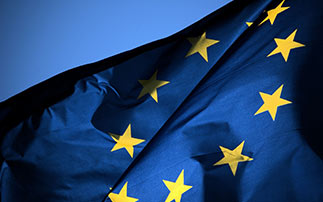
25 August 2021
+33(0)1 42 54 60 64 | contact@welcomeurope.com
Grants for projects which aim to establish public private partnerships in the field of technologies that are strategic for the economic growth in the European Union.
Eligible countries: Click here
Objectives
* Applied research, technology development and/or method/tool and integration, testing and validation on a small-scale prototype in a laboratory or simulated environment
Priorities
* Transport & Smart Mobility
– Major Challenge 1: Developing clean, affordable and sustainable propulsion;
– Major Challenge 2: Ensuring secure connected, cooperative and automated mobility and transportation;
– Major Challenge 3: Managing interaction between humans and vehicles;
– Major Challenge 4: Implementing infrastructure and services for smart personal mobility and logist
* Health and Wellbeing
– Moving healthcare from hospitals into our homes and daily life requiring preventive and patient centric care;
– Restructuring healthcare delivery systems, from supply-driven to patient-oriented;
– Engaging individuals more actively in their own health and wellbeing;
– Ensuring affordable healthcare for the growing amount of chronic, lifestyle related diseases and an ageing population;
– Developing platforms for wearables/implants, data analytics, artificial intelligence for precision medicine and personalised healthcare and wellbeing
* Energy
– Major Challenge 1: Ensuring sustainable power generation and energy conversion;
– Major Challenge 2: Achieving efficient community energy management;
– Major Challenge 3: Reducing energy consumption
* Digital Industry
– Major Challenge 1: Developing digital twins, simulation models for the evaluation of industrial assets at all factory levels and over system or product life-cycles;
– Major Challenge 2: AI-enabled cognitive, resilient, adaptable manufacturing;
– Major challenge 3: Developing digital platforms, application development frameworks that integrate sensors/actuators and systems;
– Major Challenge 4: Human-centred manufacturing;
– Major Challenge 5: Sustainable manufacturing in a circular economy
* Digital Life
– Major Challenge 1: Ensuring safe and secure spaces;
– Major Challenge 2: Ensuring healthy and comfortable spaces;
– Major Challenge 3: Ensuring anticipating spaces;
– Major Challenge 4: Ensuring sustainable spaces
* Systems and Components: Architecture, Design and Integration
– Major Challenge 1: Managing critical, autonomous, cooperating, evolvable systems;
– Major Challenge 2: Managing Complexity;
– Major Challenge 3: Managing Diversity;
– Major Challenge 4: Managing Multiple Constraint;
– Major Challenge 5: Integrating features of various technologies and materials into miniaturised smart components;
– Major Challenge 6: Effectively integrating modules for highly demanding environments;
– Major Challenge 7: Increasing compactness and capabilities by functional and physical systems integration
* Connectivity and Interoperability
– Major Challenge 1: Strengthening the EU position on differentiated technologies and enabling it to capture higher value by moving to system/module level;
– Major Challenge 2: Autonomous interoperability translation for communication protocol, data encoding, security and information semantics;
– Major Challenge 3: Architectures and reference implementations of interoperable, secure, scalable, smart and evolvable IoT and SoS connectivity
* Safety, Security and Reliability
– Major Challenge 1: Safety, security and privacy by design;
– Major Challenge 2: Reliability and Functional Safety;
– Major Challenge 3: Secure, safe and trustable connectivity and infrastructure;
– Major Challenge 4: Privacy, data protection and human interaction
* Computing and Storage
– Increasing performance at acceptable costs;
– Making computing systems more integrated with the real world;
– Making “intelligent” machines;
– Developing new disruptive technologies
* Process Technology, Equipment, Materials and Manufacturing for Electronic Components & Systems
– Major Challenge 1: Develop advanced logic and memory technology for nanoscale integration and application-driven performance;
– Major Challenge 2: Develop Technology for Heterogeneous System-on-Chip (SoC) Integration;
– Major Challenge 3: Develop technology for Advanced Packaging and Heterogeneous System-in-Package (SiP) integration;
– Major Challenge 4: Extend world leadership in Semiconductor Equipment, Materials and Manufacturing solutions
* Long-term vision
– New computing paradigms (‘Beyond CMOS’);
– Process technology, equipment and materials;
– Systems and components: architecture, design and integration;
– Health & wellbeing;
– Energy;
– Digital Industry;
– Transport and smart mobility;
– Connectivity and interoperability;
– Data science and Artificial Intelligence
Among financed actions
* Activities with a TRL 3-4
Additional information
* This call for proposals is an open call for proposals
* Initial duration of the project : up to 3 years
* Eligibility:
– Be a consortium composed of at least three legal entities : SMEs, Companies and Universities
– Each of the three must be established in a different Member State or associated country
– All three legal entities must be independent of each other
* Actions must take place in an eligible country
* Amount of the grant: up to 93 million euro
* Cofinancing rate:
– Large Enterprise (for profit non SME) : 20 % of the total eligible costs
– SME (for profit SME) : 25 % of the total eligible costs
– University/Other (not for profit) : 35 % of the total eligible costs

25 August 2021
